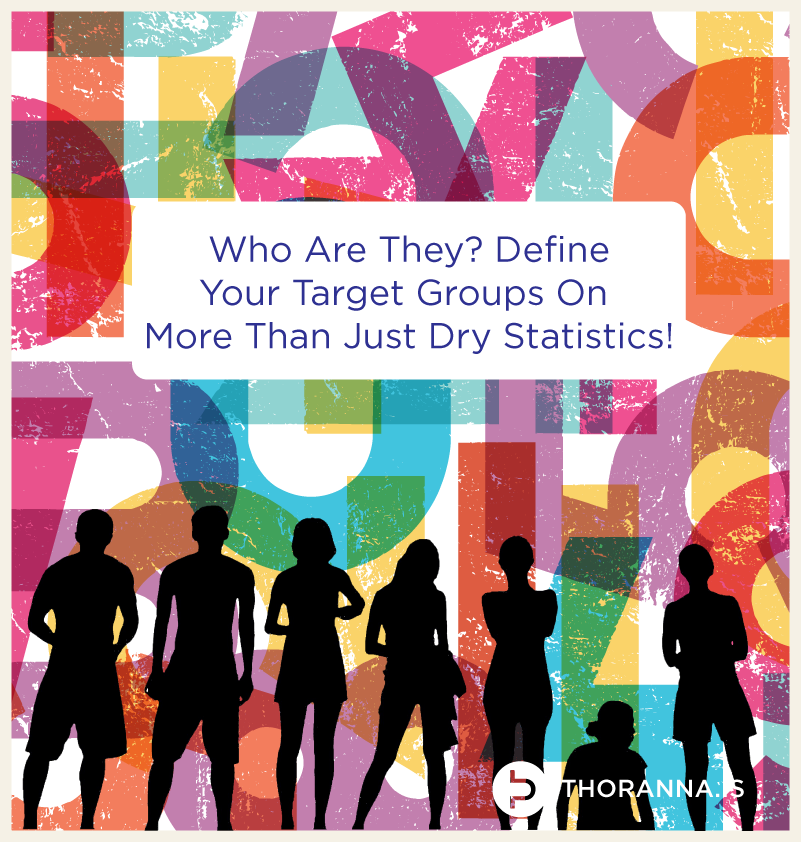 In previous posts I’ve discussed why you can’t sell to absolutely everyone and how you need to find your dream customer, the best target group or groups to focus on. But how do we define those target groups?
In previous posts I’ve discussed why you can’t sell to absolutely everyone and how you need to find your dream customer, the best target group or groups to focus on. But how do we define those target groups?
The classic way is to define them by demographical and geographical things like age, gender, income brackets, education level etc. In some cases, this is very relevant. In others, it doesn’t matter whatsoever! Whether demographics or location is relevant in your case or not, you are always going to have to drill down and find out more. You have to get to know these people like your best friends. Understand them, what matters to them, what makes them tick, what are their needs and problems, what are they struggling with. Knowing and understanding them as well as you possibly can will enable you to figure out what they are interested in, how you can provide value to them and how you can build a relationship with them.
Marketing is all about building relationships in much the same way as you build relationships on a personal level. If you want to build a relationship with someone, the more more you know about them and the better you understand them, the better equipped you are to create that bond. Understanding people’s background, values – what matters to them – will help the conversation. Think about how this is on a personal level – marketing is the same, just on a larger scale.
You want to be talking to your target group in a way that is meaningful to them. And this is even more important in this day and age with social media, blogging and all the various ways of interactivity out there where people can choose whether they want to listen. Gone are the days of traditional advertising where you really just scream at them whether they like it or not. The audience is no longer captive. They can change the channel, skip the ads, and there are even apps that let you remove the ads from the sites you are reading content on!
Modern tools, like social media for instance, give you a great opportunity to connect with people in a closer way, but it also means that the pressure is on you to really understand what they want and what matters to them, because otherwise they will just go ahead and unlike that Facebook page, unfollow that Twitter feed and unsubscribe to that mailing list.
Personally, I love that things are developing this way. That way it is not the businesses with the deepest pockets or the most pushy people that come out on top, but the ones that genuinely care about their customers and make an effort to build a relationship with them.
So as you can see, understanding your target group, knowing them as well as possible, is a pretty major thing. This coming week make an effort to really think about your customers and your target group. What do you know about them? How can you find out more about them? And how will that knowledge and understanding help you talk to them in a more meaningful way, building a stronger relationship? Let me know how it goes by using the comments below ;)